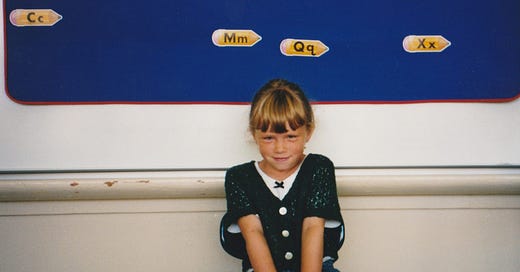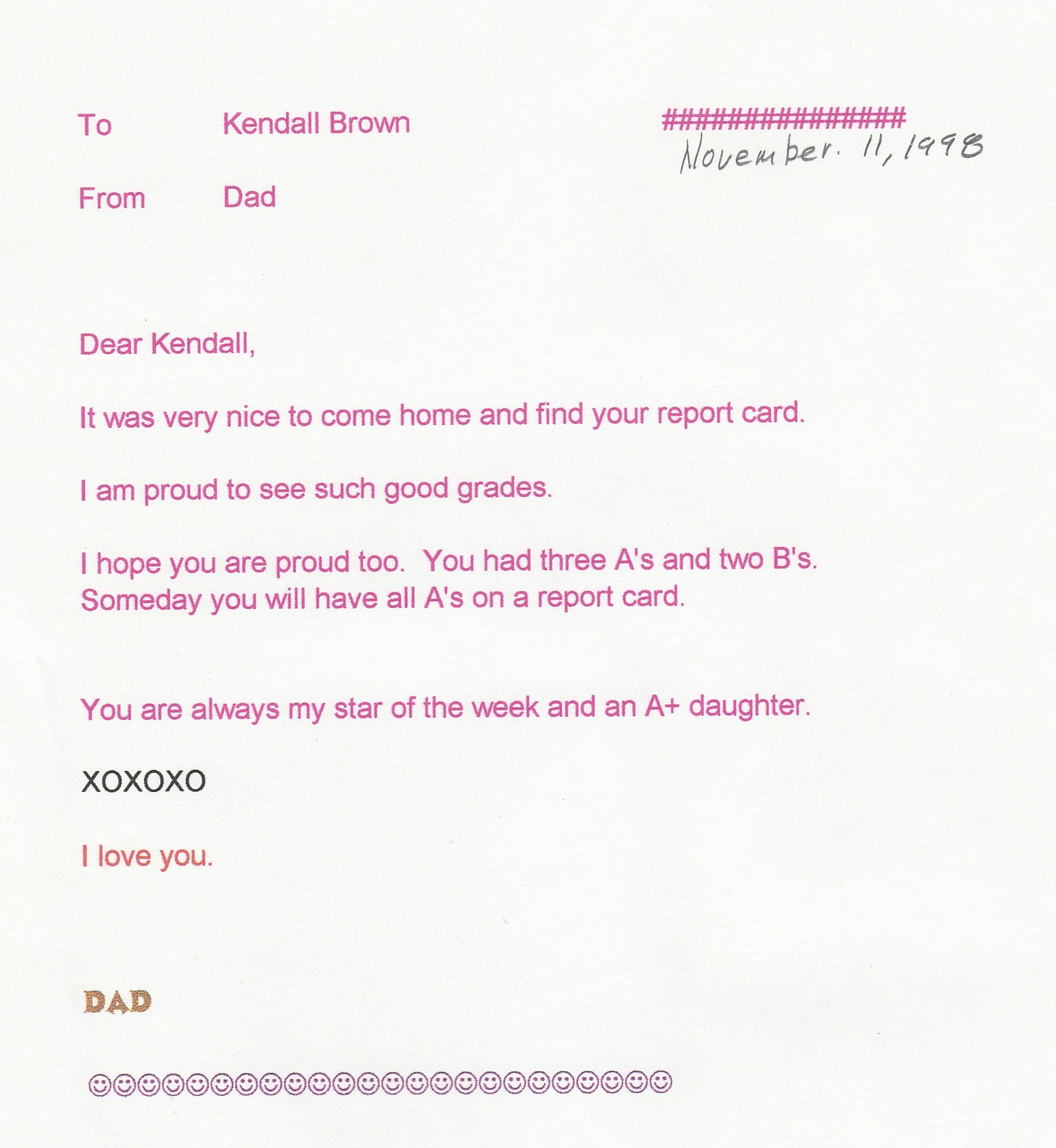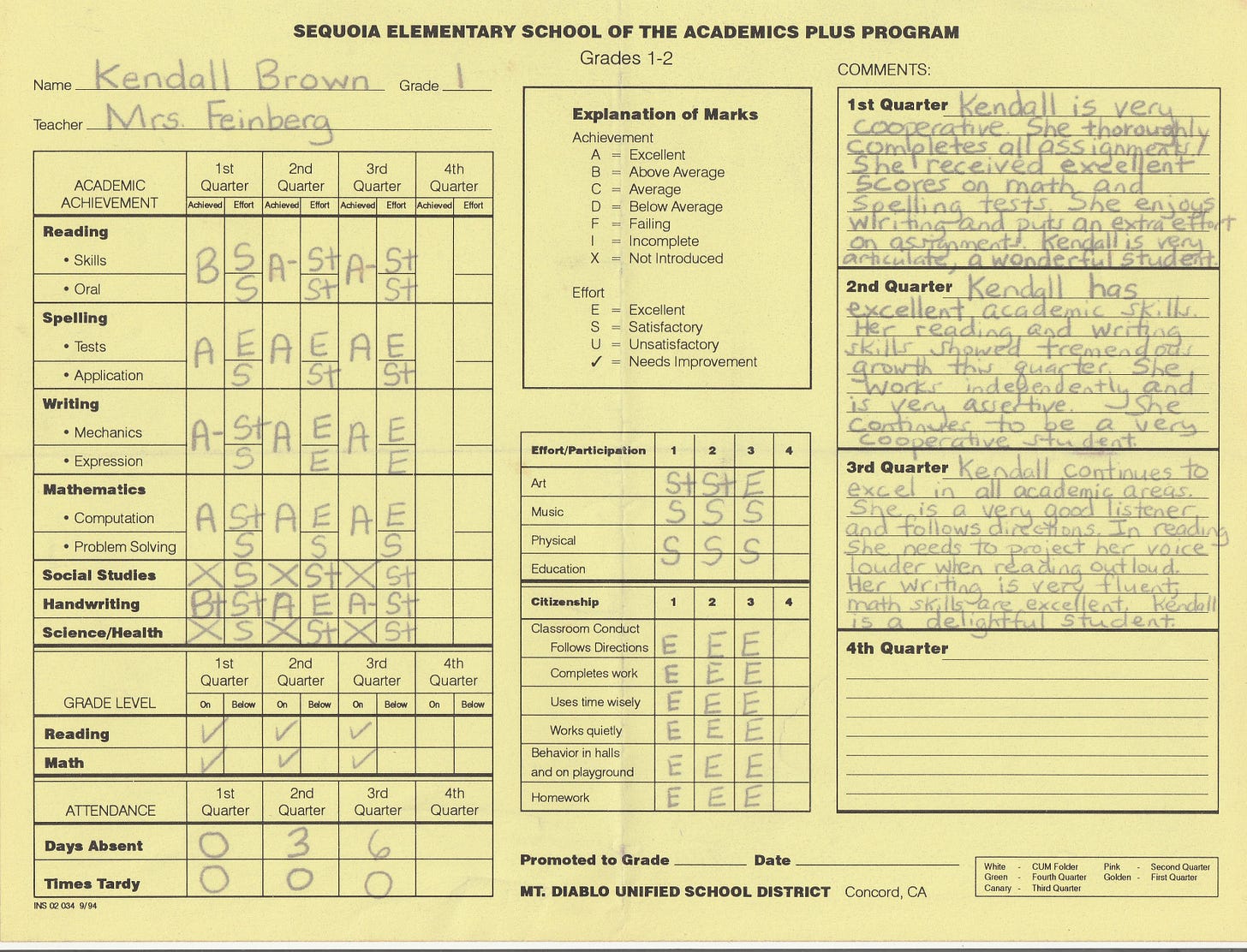8. How did I get here?
I couldn’t get a note to come together yesterday. I’m sure you were all disappointed not to get a nugget from me clogging up your Wednesday inbox. I have been having some revelations lately and words have not been coming easy.
I also want to quickly acknowledge something cringy about these letters. As Holly Whitaker writes in her “Recovering” newsletter (#52 How to actually grow up), “I’ve tried pretty hard not to make these newsletters about ‘lessons’ because that’s always where I want to go and it’s an exhausting trope to turn every story and every event into some kind of earned wisdom. But here we are.”
I ended last week’s newsletter with a bunch of platitudes and I feel silly about it. It feels insincere to try to put a bow on each of these writings. “Instead of priding myself on being acerbic, I will try to focus on being effulgent and expansive. Show, don’t tell. Right brain, not left brain. Trust, not fear. Abundance, not scarcity.”
~*Trust, not fear*~ Who am I?
So this week’s letter feels scatterbrained (it includes lots of quotes from other people and photos - what is this a celebrity memoir?!) but that’s okay.
Anyway, I have been on a Katherout binge since one of the members of my Artist’s Way group sent me one of her Youtube videos last week. Right now, I can’t stop thinking about her video “your dreams were sold to you.”
In her video, she articulates exactly how I lived my life (although she had this awakening at 25 and I am having it at 31 so she is ~*wise beyond her years*~ or I am just slow…)
“After 25 years of just being flooded by advertisements telling me what I should want, and rankings telling me who I should be, a million different ways of life on social media infiltrating my point of view, and all of the projection you just naturally get from your friends and family. With all of that combined, I'm finding myself wondering like how do I really distinguish what’s authentic to me and my vision for my life versus what has been versus what has been fabricated, manufactured.
My teenage dreams were like pretty narrow. It's not that they weren’t big, they just felt very prescriptive. I very much wanted a 4.0, I wanted to get into the top-ranked College, I wanted a boyfriend, I wanted boobs. [CHUCKLES] I wasn't reaching very far out of pre-established norms for a 14-year-old girl, and then almost a decade later, after I graduated college, my ambition still didn't dig very deep. An elite job, a nice apartment, a friend group that looks like, I don’t know, The Bold Type or Happy Endings. I almost just said Girls but I know that's not a friend group anyone should be emulating. I wanted to be engaged at 27, have my first kid at 30. But were those goals really true to who I was in that moment or were those just things that I knew were desirable? And even now as I try to depart from some of my more cookie-cutter definitions of success, I see why it's just easier to follow the formula than go rogue and establish your own guiding trajectory for what you want out of your life. But then I had to ask myself like how did these textbook definitions of success even form in the first place.”
She then introduces C. Thi Nguyen’s (Philosophy Department, University of Utah) concepts of Gamification and Value Capture.
“Right now, institutions and technologists are trying to fix our motivational problems through gamification. By adding points, achievements, and medals to processes like education, work, and fitness, they promise to fix our weak wills with technology and game design.
But the techniques which work so well in the special space of games has some dangerous consequences in gamified life. Games give us pleasure by narrowing and simplifying our values — by giving us a momentary shelter from the complex value confusion of the world. When we try to gamify ordinary activities, we can make them easier and more pleasurable by simplifying the goals. We have increased motivation, but for a changed target.
This leads us to think about a larger phenomenon: value capture, which is when institutions, bureaucracies, and technologies present us with simplified versions of our values, and those simplified versions take over in our motivation. Examples include FitBit, GPA, citation rates, academic assessment, US News & World Report rankings, points in wine and beer reviewing, and money. Quantification makes evaluations clearer and easier to manipulate by stripping off nuance and context.
When we integrate quantifications into our valuing, we make gains in the capacity to socially integrate, but at the loss of subtlety and sensitivity. And thinking about the dangers of value capture will show us something important about what it means to be a free and autonomous being — a full participant in forming the terms of our life’s worth — and what we lose when we get our values off-the-rack”
OOF. I have spent my whole life chasing values that I got off the rack. This has resulted in my current fugue state (credit: Katherout) where I am floating in the abyss of unemployment. I have woken up to the idea that I bought into values that I didn’t define for myself but I am paralyzed and overwhelmed because I have no idea what my values are.
How did I get here?
This weekend I went to my parent’s house because my husband ran the Eugene Marathon. He is amazing and ran it in less than 3 hours!! While at their house, I went up in the attic and collected 3 banker's boxes of my past life (I call them “my musings”). Now I am sorting through the detritus from my childhood to try to uncover why I am the way I am. So far I have discovered a delightful story that my mom wrote about when I stuck a bead up my nose at age 4 and had to go to the emergency room.
I also found a note from my father that he wrote to me on November 11, 1998, when I was 6. At first glance, it appears innocuous and sweet.
This was written to me after I got my first report card in 1st grade. What in the what! Who gives letter grades to FIRST GRADERS? Psychopaths that’s who. I am always quick to blame my flaws on my parents but this one feels… blatant. “Someday you will have all A’s on a report card.” To his credit, he does say that I am an A+ daughter but that clearly doesn’t count for shit and was added at the end to make up for the focus on my 2 B’s. “B” in reading and a “B+” in handwriting. What a slacker! To be fair, I know my dad just wanted the best for me and I didn’t grow up in a vacuum. He was just trying to help me achieve society’s simplified values/goals.
His typed-up letter worked (also lol to the fact that he typed up this letter to my first-grade self!) I considered his feedback and improved to quickly became a straight-A student in Q2! And from November 1998 to now it was GAME ON!
I have never stopped to consider if these “markers of success” were what I even wanted. I simply wanted them because I wanted to be “good.” Straight A’s, an elite college, an “impressive” (high paying) job, a romantic partner - I NEEDED all of these things to feel okay about myself. Without them, I was insufficient - not enough.
In the first draft of my wedding vows (this lovely anecdote luckily did not make the final cut), I completely pander to this line of thinking and I try to play it off as charming!
“We had been dating for about six months when I sent you a spreadsheet called my "10 year plan." In it, I had my life mapped out year by year until I was 32 and it included where I'd like to live, what salary I'd be making, and included events like when we'd get a puppy, when we'd get engaged, and when we would have kids. I sent it to you in the middle of the work day and basically said something to the effect of "you can hop on for the ride or not but this is my game plan" and you responded "sounds good to me." I don't think there is anyone else in the world who would respond like that to an email like that. Ultimately, my timing wasn't spot on but everything I had hoped for came true - we did move from Portland to San Francisco to San Diego and we did get our perfect puppy, and got engaged and now we are getting married. My goals seemed so lofty at the time but we achieved everything and so much more and that's because we did it together.”
Yikes (also barf). I had my whole life mapped out. I knew when I wanted to be making over 6 figures, when I would receive the proper financial certifications/designations that would signal to the world that I was SMART, when we would get engaged, moved to the suburbs, and when we would have babies! Deranged.
I feel so stupid! I was such a robot - so willing to dedicate my whole being to achieving these simplified dreams. Have I ever thought critically about anything in my entire life?!
In another fantastic Katherout video, “I'm in recovery after 20 years as an insecure overachiever,” Katherine (I like to imagine that after watching a handful of her videos I can call her Kath…) tears up as she thinks about what her 8-year-old self would have wanted for her current self.
“Who is the overachievement for? I recently wrote a letter from my eight-year-old self to present-day Kath trying to re-inhabit like what she would want to tell me and when I tell you I sobbed a letter from my 8-year-old self within the first sentence of the ink hitting the paper. It broke me to like really think about who I was before all of this conditioning, all of these expectations, all of this just weight was on me. It literally still makes me sad, like, it literally still makes me sad to think about like how far I've gone from my little inner child who never wanted to be a competitor, and I didn't care what tier I was in because I didn't know that existed. I just wanted to learn and I wanted to play and I want to get involved with my community and I wanted to make music and I loved art. And I was like literally doing that for myself, like it wasn't for anybody else. It is such a powerful exercise, I cannot recommend it enough to help break some of those cycles that you've been in. Cause somewhere along the way my ambition got caught up in achievement, and suddenly it wasn't this pure, beautiful interest and passion and just growth and expanding myself and exploring, it was about the way it would be measured by other people.”
UGH. It makes me emotional just reading her words again.
All of this conditioning has resulted in my perfectionism, which is a topic of Week 7 in “The Artist’s Way.” I feel sort of self-congratulatory by saying I am a recovering perfectionist. As if by identifying as a perfectionist I am saying that I am perfect and I have higher standards than others and am somehow better than others. Julia skewers this inflated thinking.
“To the perfectionist, there is always room for improvement. The perfectionist calls this humility. In reality, it is egotism. It is pride that makes us want to write a perfect script, paint a perfect painting, perform a perfect audition monologue.
Perfectionism is not a quest for the best. It is a pursuit of the worst in ourselves, the part that tells us that nothing we do will ever be good enough—that we should try again. No. We should not.”
I tell myself that my commitment to self-improvement made me superior to others. But it has kept me caged in and feeling like a failure who never measures up to my expectations. I am completely unwilling to be a beginner. I must be perfect. I desperately want to take up rock climbing but the thought of being bad makes me break out in a sweat.
“A painting is never finished. It simply stops in interesting places,” said Paul Gardner. A book is never finished. But at a certain point you stop writing it and go on to the next thing. A film is never cut perfectly, but at a certain point you let go and call it done. That is a normal part of creativity—letting go. We always do the best that we can by the light we have to see by.
“Living is a form of not being sure, not knowing what next or how. The moment you know how, you begin to die a little. The artist never entirely knows. We guess. We may be wrong, but we take leap after leap in the dark.” - AGNES DE MILLE
At the end of my first (and currently only published) podcast episode, I said,
“That's part of the reason I wanted to do this podcast. I want it to be almost a time capsule of my life because you don't know what the future holds, which I think is so cool. I was just journaling about that today. I was like, I have no idea what's gonna happen. And that's kind of crazy and cool.
We could talk in six months, have a completely different call about the same topic. things change. So this is really just a snapshot of what we're feeling today, January 16th, 2023. But shit's gonna get different always.”
My brother-in-law started a podcast last year which he abandoned after 10 episodes, so I reached out to him for advice about getting started and he asked me an accusatory question: what is your podcast about? When I told him, “Different topics for different people, I’m interested in how/why people make certain decisions, what people value and why. I’m envisioning it being more like a talk show vs a specific topic.” He responded, "Admittedly I feel like podcasts are way too over-saturated with generic interviews and “talk about life” type subjects. Any celebrity with half a following now feels obligated to start an interview-based podcast, making it even more difficult for everyday people like you and I." Thanks, bro - I didn't ask for your input although that’s exactly what I did. I exclusively listen to "talk about life" podcasts so I know that there is a market for this type of content.
Whenever I am feeling a feeling, I turn to the internet to see if others have experienced something similar to what I’m going through. I know there are a million bloggers out there but right now I feel like no blogs are hitting the mark for me in terms of relatability.
As Toni Morrison said, “If there’s a book out there that you want to read that doesn't exist, you must go out and write it.” When I have read an experience of others that mirrors mine, it has helped me process. If one reader of my blog feels seen in my words, it will have been worthwhile.
He also told me that he used “Audacity to record my intro/outro and editing the interview (Deleting pauses, umms, etc.)” Cue my perfectionism! I recorded my first episode on January 16th and didn’t finish editing it fully until February 12th. This sent me into a shame spiral. Why couldn’t I edit faster? Editing out each “umm” and “like” was truly the most tedious thing I have ever done. How on earth do people churn out perfectly edited episodes in one day? It’s important to note that Katherout says like and I do not mind ONE BIT.
I recorded my second episode on March 5 and edited 90% of it by March 31st (still insanely slow because I LOATHE EDITING). I refuse to pay for a software editing service so I hobble together free ones but they only let you edit one hour free so I have 10 extra unedited minutes that are haunting me. It’s May 4th! My girl Julia (Cameron) always calls out me out on my bullshit.
“I’ll look like an idiot,” we say, conjuring images of our first acting class, our first hobbled short story, our terrible drawings. Part of the game here is lining up the masters and measuring our baby steps against their perfected craft. We don’t compare our student films to George Lucas’s student films. Instead, we compare them to Star Wars.
I am benchmarking my little podcast (which I started as a creative outlet for PLEASURE with no intention of ever monetizing it!!!) against the work of the Oprahs and Joe Rogans of the world. I know it’s insanity. I need to read the background of my phone and “examine your pay-offs in remaining stuck.”
“We deny that in order to do something well we must first be willing to do it badly. Instead, we opt for setting our limits at the point where we feel assured of success. Living within these bounds, we may feel stifled, smothered, despairing, bored. But, yes, we do feel safe. And safety is a very expensive illusion.”
A very expensive illusion indeed. It’s a price that I am no longer willing to pay!!
Tags - Family, Inspiration, Memories, Writing







